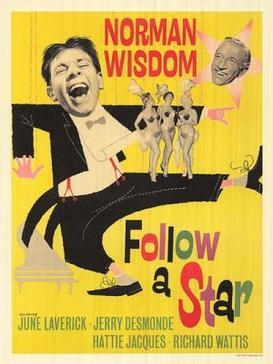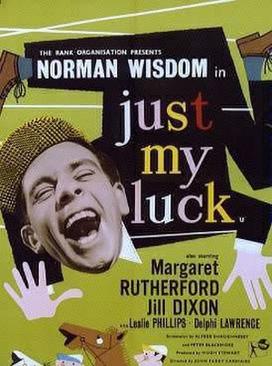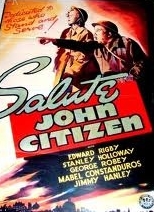
Peggy Cummins was an Irish actress, born in Wales, who is best known for her performance in Joseph H. Lewis's Gun Crazy (1950), playing a trigger-happyfemme fatale, who robs banks with her lover. In 2020, she was listed at number 16 on The Irish Times list of Ireland's greatest film actors.

Carry On Nurse is a 1959 British comedy film, the second in the series of 31 Carry On films (1958–1992). Of the regular team, it featured Joan Sims, Kenneth Williams, Kenneth Connor and Charles Hawtrey, with Hattie Jacques and Leslie Phillips. The film was written by Norman Hudis based on the play Ring for Catty by Patrick Cargill and Jack Beale. It was the top-grossing film of 1959 in the United Kingdom and, with an audience of 10.4 million, had the highest cinema viewing of any of the "Carry On" films. Perhaps surprisingly, it was also highly successful in the United States, where it was reported that it played at some cinemas for three years. The film was followed by Carry On Teacher 1959.

Carry On Teacher is a 1959 British comedy film, the third in the series of 31 Carry On films (1958–1992). It was released at the Plaza Cinema in London on 3 September 1959. It features Ted Ray in his only Carry On role, alongside series regulars; Kenneth Connor, Charles Hawtrey, Kenneth Williams and Hattie Jacques. Leslie Phillips and Joan Sims make their second appearances in the series here, having made their debuts in the previous entry, Carry On Nurse. A young Richard O'Sullivan and Larry Dann – making the first of his four Carry on appearances – turn up as pupils. In 2023, Dann dedicated a chapter of his autobiography "Oh, What A Lovely Memoir" to share his memories of this production. The film was followed by Carry On Constable 1960.

Carry On Constable is a 1960 British comedy film, the fourth in the series of 31 Carry On films (1958–1992). It was released in February 1960. Of the regular team, it featured Kenneth Connor, Kenneth Williams, Charles Hawtrey, Joan Sims, and Hattie Jacques. Sid James makes his debut in the series here, while early regulars Leslie Phillips, Eric Barker, and Shirley Eaton also turn up, although Phillips did not appear again in the series for 32 years. It was the first "Carry On..." film to include some nudity with Connor, Hawtrey, Williams, and Phillips baring their behinds during a shower scene. The film was followed by Carry On Regardless 1961.

Carry On Regardless is a 1961 British comedy film, the fifth in the series of 31 Carry On films (1958–1992). The film revolves loosely around the activities of a job agency, 'Helping Hand', run by Sid James's character, Bert Handy. By now a fairly regular team was established with Sid James, Kenneth Connor, Charles Hawtrey, Joan Sims and Kenneth Williams all having appeared in previous entries. Hattie Jacques – who was also a regular – makes a cameo appearance during a hospital scene. "Professor" Stanley Unwin appears in a guest role, playing his trademark "gobbledegook" speaking act. This would be the final appearance in the series for early regular Terence Longdon. Liz Fraser makes her debut in Carry On Regardless and would appear in a further three Carry On films. The film was followed by Carry On Cruising 1962.

Carry On Loving is a 1970 British comedy film, the 20th release in the series of 31 Carry On films (1958–1992). It features series regulars Sid James, Kenneth Williams, Charles Hawtrey, Joan Sims, Hattie Jacques, Terry Scott and Bernard Bresslaw alongside newcomers Richard O'Callaghan and Imogen Hassall. The dialogue veers toward open bawdiness rather than the evasive innuendo characteristic of the earlier films in the series. There are fictitious locations named for their sexual innuendo, including 'Much-Snogging-On-The-Green', 'Rogerham Mansions' and 'Dunham Road'. The film was followed by Carry On Henry in 1971.

Follow a Star is a 1959 British black and white comedy musical film directed by Robert Asher and starring Norman Wisdom.

Meet Mr. Lucifer is a 1953 black-and-white British comedy satire film directed by Anthony Pelisser starring Stanley Holloway, Peggy Cummins and Jack Watling. It is based on the 1951 play Beggar My Neighbour by Arnold Ridley. It opened on 26 November 1953 at the Haymarket Gaumont cinema in London. It was filmed at Ealing Studios, London, and is one of the Ealing comedies.

Dry Rot is a 1956 British comedy film directed by Maurice Elvey, and starring Ronald Shiner, Brian Rix, Peggy Mount, and Sid James. The screenplay is by John Chapman, adapted from his 1954 Whitehall farce of the same name.

The Crowded Day is a 1954 British comedy drama film directed by John Guillermin and starring John Gregson, Joan Rice, Cyril Raymond and Josephine Griffin. The film follows a group of shopgirls working in Bunting and Hobbs, a London department store, during the Christmas shopping season. It was an attempt by Adelphi Films to move into bigger budgeted films. It was the last movie Guillermin directed for the company. It was released in the United States under the title Shop Spoiled.

No Kidding is a 1960 British comedy film directed by Gerald Thomas featuring Leslie Phillips, Geraldine McEwan and Irene Handl, Noel Purcell and Julia Lockwood. The film is adapted from Verily Anderson's 1958 memoir Beware of Children, who also wrote the screenplay.
Welcome, Mr. Washington is a 1944 British drama film directed by Leslie S. Hiscott and starring Barbara Mullen, Donald Stewart and Peggy Cummins. The film was made by British National Films, based on a story by Noel Streatfeild.

Doctor in Love is a 1960 British comedy film, the fourth of the seven films in the Doctor series, directed by Ralph Thomas and starring James Robertson Justice and Michael Craig. It was the first film in the series not to feature Dirk Bogarde, although he did return for the next film in the series Doctor in Distress. It was loosely based on the 1957 novel of the same title by Richard Gordon.

Left Right and Centre is a 1959 British satirical comedy film directed by Sidney Gilliat and starring Ian Carmichael, Patricia Bredin, Richard Wattis, Eric Barker and Alastair Sim. It was produced by Frank Launder. A political comedy, it follows the events of a by-election in a small English town.

Just My Luck is a 1957 British sports comedy film directed by John Paddy Carstairs and starring Norman Wisdom, Margaret Rutherford, Jill Dixon and Leslie Phillips.

He Found a Star is a 1941 British musical film directed by John Paddy Carstairs and starring Vic Oliver, Sarah Churchill and Evelyn Dall. It concerns a frustrated stage manager who quits his job and, with his secretary's help, sets up a theatrical agency. Its songs include Waitin' and Salome. Its sets were designed by Alfred Junge.

Salute John Citizen is a 1942 black and white British drama film directed by Maurice Elvey and starring Edward Rigby, Mabel Constanduros and Jimmy Hanley. The Bunting family face up to the fortunes of war during the Second World War.

To Dorothy a Son is a black and white 1954 British gentle comedy film in the form of a farce directed by Muriel Box and starring Shelley Winters, John Gregson and Peggy Cummins. Known in the U.S. as Cash on Delivery, it is based on the 1950 play To Dorothy, a Son by Roger MacDougall which had enjoyed a lengthy run in the West End. It was shot at Elstree Studios near London with sets designed by the art director George Provis. It was distributed in America by RKO Pictures in January 1956.

Two Thoroughbreds is a 1939 American drama film directed by Jack Hively, written by Joseph Fields and Jerome Cady, and starring Jimmy Lydon, Joan Leslie, Arthur Hohl, J.M. Kerrigan, Marjorie Main, Selmer Jackson and Spencer Charters. It was released on December 8, 1939, by RKO Pictures.

This Was a Woman is a 1948 British crime film directed by Tim Whelan and starring Sonia Dresdel, Walter Fitzgerald and Emrys Jones. It was made at the Riverside Studios with sets designed by the art directors Ivan King and Andrew Mazzei. Based on a successful play by former film actress Joan Morgan, its plot concerns an outwardly respectable family dominated by a murderous matriarch.



















